9 German words they’ll (almost) never teach you in school
German is not only the language found on dictionaries and in school. Here is a list of nine words used in everyday life that you won’t find in books.
After years of German language courses, you might think that you are ready for the big step: to converse with mother tongue speakers. Yet, when speaking German there might be the high possibility of being disappointed in one own’s preparation when tackling a conversation. In schools and in language courses, in fact, not always will one learn the most recurrent colloquial expressions. Here are some that will make your conversations more realistic and close to German colloquial jargon:
1.Na?
After the first attempts of approaching the German people one will swiftly realize that often even courteous expressions differ from what was studied on books. Even a “How are you?” might sound different from the common “Wie geht’s dir?”. “Na?” might be easily translated to “Well?”. It is commonly used to ask clarification and/or information to someone with whom you are in confidence with.
2. Naja
“Na?” however must not be confused with “Naja”, which instead expresses doubt and puzzlement. It might be used to answer the question “How are you?”, with a “Fine” that actually conveys other feelings.
3. Quatsch
It is a quite recurrent word and it might sound as “Nonsense!”. It is found also in the expression “Das ist totaler Quatsch!” to affirm that what said has absolutely no sense.
4. Mach’s gut!
At the end of a night out with friends the expression “Mach’s gut!” might be used to say goodbye. Instead of the more common “Tschüß”, “Mach’s gut!” conveys a caring “Take care of yourself”.
5. Quasi, sozusagen, halt
“How”, “so to say”, “like” are expressions used and abused in almost every language. They are found also in German, in particular in young people’s jargon. Integrating these expressions will make our conversation more colloquial and close to everyday language.
6. Krass
“Krass” is a term that fits well almost everywhere, and it is used as an exclamation of reaction to a strong emotion, whether positive or negative. It might thus mean “Incredible!” “Damn!” and generally convey surprise in front of something unexpected.
7. Geil
Once learned the meaning of this word, a day won’t pass without hearing it. It is used to indicate that something is really nice, incredible, super, actually supergeil, as Friedrich Liechtenstein sings in a famous Edeka ad. Yet this term actually has a different meaning in origin, being an adjective that signifies that something is “Lascivious” (and may be used in a vulgar manner as well). Thus, it would be strongly advised to avoid using this term in formal contexts.
8. Jein
When you are not capable of giving a direct answer and wish you could reply with a “yes/no/maybe” you can reply with the german “Jein”, which conveys precisely this idea.
9. Auf jeden Fall
Literally means “in any way” but may be used to say “surely” and feel more integrated with the natives that use this expression with great frequency.
Cover photo: © Jugendliche im Gespräch – Bankenverband – Bundesverband deutscher Banken – CC BY SA 2.0


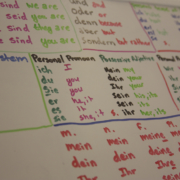
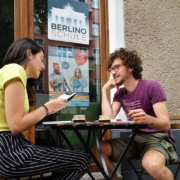

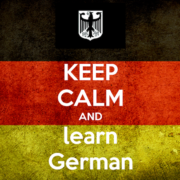
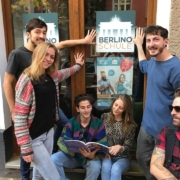

 Pixabay
Pixabay 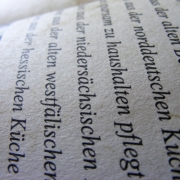



Leave a Reply
Want to join the discussion?Feel free to contribute!